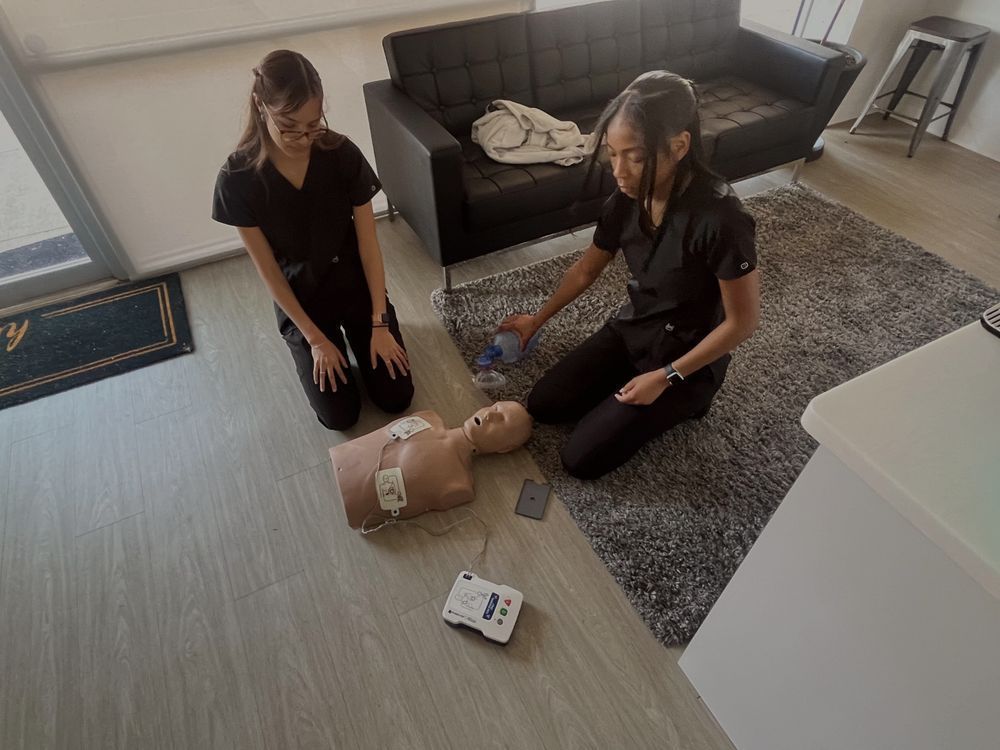Medical Assistant Job Duties and What to Expect on the Job
Medical Assistant Job Duties: What to Expect on the Job
Medical assistants are a vital part of today’s healthcare teams. They support doctors, nurses, and patients by combining administrative responsibilities with hands-on clinical tasks. Whether in a private practice, clinic, or urgent care center, medical assistants play a key role in ensuring healthcare operations run smoothly. As demand continues to rise for skilled healthcare workers, medical assisting offers a fast, stable entry point into the medical field.
Understanding what a medical assistant does day to day is essential for anyone considering this career path. From working with patients to managing medical records, the job requires versatility, empathy, and precision. Below are seven essential job duties that medical assistants can expect on the job, along with insight into how each task contributes to overall patient care and clinic efficiency.
- Taking Patient Vital Signs
One of the first responsibilities medical assistants take on in a clinical setting is measuring vital signs. These include a patient’s blood pressure, pulse rate, respiration rate, temperature, and sometimes blood oxygen saturation. This information helps providers assess a patient’s current health and identify urgent issues.
Accurate vital signs are essential for diagnosis and treatment. Medical assistants need to be comfortable using tools like sphygmomanometers (blood pressure cuffs), thermometers, and pulse oximeters. Beyond knowing how to use the equipment, they must also know how to interpret the data and recognize abnormal readings that should be flagged for the provider’s immediate attention.
- Preparing Patients for Exams and Procedures
Medical assistants help bridge the gap between patients and physicians by preparing individuals for examinations or procedures. This can include helping them get into proper gowns, positioning them correctly on the exam table, or explaining what to expect during the appointment.
This duty requires strong communication and interpersonal skills. Patients may be anxious, embarrassed, or confused about what’s happening. A medical assistant’s ability to reassure them, maintain professionalism, and protect patient privacy (in compliance with HIPAA regulations) contributes to a positive healthcare experience.
- Collecting and Processing Laboratory Specimens
In many healthcare settings, medical assistants are responsible for collecting specimens such as blood, urine, or swabs for lab testing. They may also perform basic lab procedures like urinalysis, blood glucose testing, or pregnancy tests, depending on the clinic’s capabilities.
This task requires strict attention to cleanliness and safety protocols, including proper labeling, storage, and disposal of biological materials. Precision is key—mislabeling a specimen or skipping a safety step could result in misdiagnosis or contamination. MAs trained in phlebotomy (blood draws) are especially valuable in facilities that conduct frequent lab work on-site.
- Managing Electronic Health Records (EHR)
Medical assistants play a major role in maintaining accurate and up-to-date electronic health records (EHR). This involves entering patient data, updating medical histories, recording lab results, and documenting clinical observations from exams and treatments.
Strong EHR skills improve clinic workflow and ensure providers have immediate access to essential patient data. It also contributes to better patient outcomes, as errors in documentation can lead to delays in care or incorrect treatments. Familiarity with common EHR software systems—such as Epic, Cerner, or Kareo—can make a medical assistant more effective and valuable on the job.
- Scheduling Appointments and Coordinating Care
In smaller practices especially, medical assistants often assist with scheduling appointments, sending reminders, and coordinating referrals to specialists. This role supports the administrative side of the clinic but has a direct impact on patient care continuity.
Medical assistants must balance time management with empathy. They often need to work within the limits of provider availability while accommodating patients’ health needs and personal schedules. In addition, they may need to verify insurance, obtain pre-authorizations, or follow up with patients about test results or treatment plans.
- Administering Medications and Injections
Under the supervision of a licensed provider, medical assistants may be responsible for administering medications or injections, including vaccines, insulin, or vitamin B12 shots. They must understand dosing, injection technique, and safety procedures to prevent adverse events.
This duty highlights the importance of hands-on clinical training. Not only must MAs know how to properly prepare and deliver injections, but they also need to observe patients afterward and report any reactions. In some cases, they may also educate patients on how to self-administer medications at home.
- Assisting with Minor Procedures
Medical assistants often support physicians during minor in-office procedures like wound care, suturing, lesion removal, or Pap smears. Their responsibilities might include sterilizing instruments, handing tools to the provider, maintaining a sterile field, or documenting the procedure.
This hands-on experience reinforces the team-based nature of healthcare. MAs must be quick, organized, and observant, anticipating the provider’s needs while prioritizing patient safety. These procedures are often routine, but precision and professionalism are essential at every step.
Explore a Role that Combines Care and Coordination
Medical assistants wear many hats in a healthcare setting, contributing both to patient experience and clinical efficiency. Their hybrid role—supporting both administrative and clinical functions—makes them uniquely positioned to improve outcomes, reduce provider burnout, and build trusting patient relationships.
While the work can be fast-paced and demanding, it’s also deeply rewarding. Medical assistants often serve as a point of continuity for patients, especially in community clinics or busy primary care practices. They have the opportunity to learn every day, grow into specialized roles, and play an active part in a patient’s healthcare journey.
Pulse Medical Assistant School offers a 16-week, online-first medical assistant program that combines the flexibility of remote learning with the confidence-building experience of in-person clinical labs. Through expert instruction, hands-on practice, and real-world preparation, our students are equipped to help real patients receive real care.
Whether you’re looking to change careers or take your first step into healthcare, Pulse gives you the knowledge, skills, and support you need to succeed as a medical assistant.
You're only a few months from the medical assistant career you deserve.
